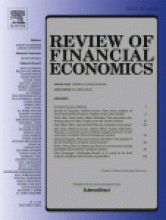
Abstract
Literature is rife with studies on efficiency of stock markets and financial performance aspects. One such aspect is the measurement of sectoral efficiency amongst stock markets. While there are several studies analysing sectorial efficiency, there is no study on the efficiency of Islamic sector indexes. The rise of Islamic indices has raised the question and multiple studies have been undertaken in exploring and validating the better performance from a risk return framework for the Islamic indices. This study attempts to pioneer in this niche area by conducting a comparative analysis of 10 sectoral global indices for both conventional and Islamic counterpart spanning over 18 years. The sample time period runs from 1 January 1996 until 31 December 2014. To further validate our study, we have divided our data into four major time periods, to factor in different phases the world markets have gone through in the sample period, i.e. 1996–2000; 2001–2002; 2003–2006 and 2006 to 2014. The methodology selected in understanding the efficiency of these sectoral stock indices is the multifractal de-trended fluctuation analysis (MFDFA). Our analysis reveals that in the shorter horizon, efficiency tends to follow a similar pattern amongst the conventional and Islamic counterpart. Furthermore, Islamic sectoral indices generally tend to exhibit a higher efficiency regime across the last decade. Overall, Islamic index seems to have stayed attractive and resilient, allowing conformity with the weak form efficient market hypothesis.
Keywords
Islamic indices; Decomposed returns; Stock market efficiency; Multifractal
